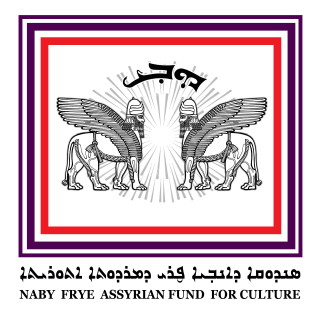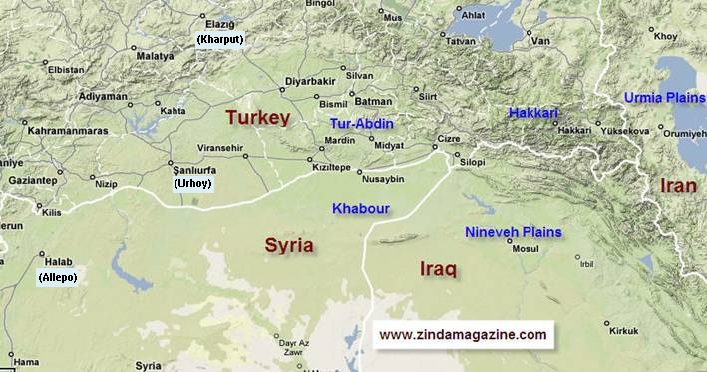 ©
©
Naby Frye
Assyrian Fund for Culture
Incorporated in the
Commonwealth of Massachusetts in 2012
| |
| Exhibits |
| Board of Directors |
| Grant History |
| Other Activities |
| Grant Submissions |
| Donate |
| NFAFC Logo |
| Contact NFAFC |
Naby Frye Assyrian Fund for Culture
15 Tower Hill Road
Brimfield, MA 01010
info@nabyfryeculturefund.org
501(c)(3) organization
—Promoting art and culture of stateless ethnic groups, with particular attention to Assyrians and similar peoples whose origins are from the middle east and to support craftsmanship and art based in New England—
An Introduction to Modern Assyrians |
Modern Assyrians are an indigenous people of the Middle East distinguished by their heritage, language, and religion. Their homeland, located in the heartland of the ancient Assyrian Empire, during the 20th century, is divided along international borders bounding Syria, Turkey, Iraq, and Iran. Many Assyrians still live near the archeological remnants of cities such as Nineveh, Khorsabad, and Babylon. The basis for the language of modern Assyrians is Aramaic, of which they form the last significant speakers. Aramaic, written alphabetically, served as the lingua franca of the Assyrian Empire and together with Akkadian, written in cuneiform characters, was the everyday language of the ancient empire. The Achaemenids of Iran later adopted Aramaic in the same role. Aramaic is the oldest continuously written and spoken language of the Middle East, and the oldest in the world after Chinese. Assyrians began adopting Christianity in the 1st Christian century in Urhoy (Edessa) (Turkish, Sanliurfa). Syriac Christianity converted Armenians in the early 4th century, and traveled along the Silk Road to China in the 7th century where members of royal Chengizid tribes adopted it. Modern Assyrian transition from patriarchal church eponyms to a single cultural identity evolved over the 19th century as nationalism coalesced among neighboring ethnic groups. For the present, in Western languages, the term Assyrian subsumes members of the Chaldean Catholic Church, the Syrian Catholic Church, the Syriac Orthodox Church and the Church of the East as well as their Protestant offshoots. Among close neighbors in the Middle East however, Assyrians are known as “Aisor” in Armenian, “Asori” in Persian, and “Assyriskii” in Russian. Among Assyrians themselves, the self-designation of “Suryoyo” and “Suryaye” carries the weight of thousand-year tradition. Both these terms relate to Assyrian since “Assyrian” and “Syrian” is historically the eastern and western manifestation of the same term. Under succeeding Islamic states since the 7th century, Assyrians, like other non-Muslim ethnic communities, became reduced to the status of barely-tolerated minorities. Since the Genocide during World War I, continuous persecution has produced a global Assyrian Diaspora. Preservation of this unique cultural heritage rests with the Assyrian community aided by those who recognize the value of the harmony of world civilizations.
|
|
||
